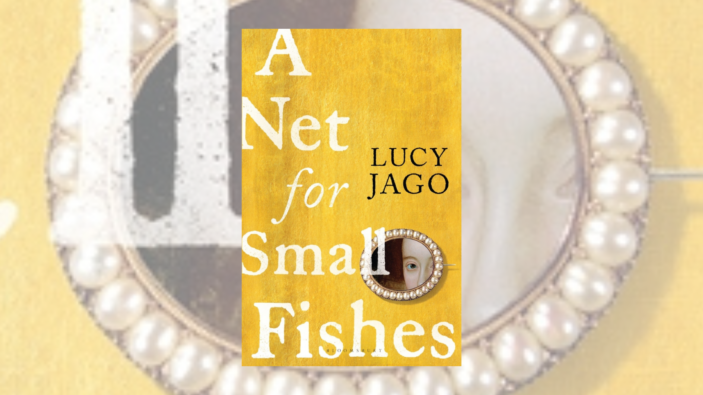
‘Today is the fourteenth day of November, 1615. I have known Frankie for nearly seven years. She is twenty-five years old and eight months pregnant. I am thirty-nine years old and about to die or be pardoned.’
You’d be forgiven for not knowing about the murder known as The Overbury Scandal. I had certainly never heard of it. Unlike that of his Tudor ancestors, the reign of King James I has been far less explored in fiction; but if Lucy Jago’s latest novel is anything to go by, that could well change.
A Net for Small Fishes is the story of this scandal, told from the point of view of two women. Our narrator, Anne Turner, is a doctor’s wife and fashionable gentlewoman living in London. It is there she meets Frances Howard, who is then the Countess of Essex. Married to a brute who has little interest in helping her conceive a child and seems to harbour resentment towards her family which his wife must suffer, Frances has decided that she is going to end her life. Enter Anne. The two of them form a friendship that day which will last them the rest of their lives – however long those lives may be.
There are many players to this plot, and like other royal Court dramas before it, A Net for Small Fishes helpfully provides a dramatis personae at the beginning. This is especially helpful, given that people are frequently referred to by their titles as well as nicknames and proper names. At times, this nicknaming is somewhat inconsistent. For example, whilst the story was being told from a later point in time, it irritated me somewhat that Anne began referring to Frances as Frankie within a few pages, before their close accord had been established. However, it does fit with the condensed style of the book.
In fact, it is refreshing to see that an intriguing historical novel can be written in less than 400 pages. Jago deftly skips through time, covering a period of some seven years without either losing continuity or making the reader feel as if they are being rushed. She begins each chapter with subtle signposts to lead her audience along with her as time passes, and impressively manages to keep the setting feeling authentic without all of the usual detail about costumes, tapestry and so forth. A great deal of research clearly lies beneath the surface of this novel.
Another strength of this novel is the development of the relationship between the two women. While we see only Anne’s point of view, the portrait of their friendship is complex and layered. And, the unreliability and selfishness of Frances’s character is clear without tainting Anne’s loyalty to her or making us doubt what she says. The nature of their relationship, and the power imbalance, is not dissimilar to the two girls in Elena Ferrante‘s Neapolitan quartet. Though to say that this character building has reached that level would not be true – but then again, what writer can reach that level other than Ferrante?
The reader begins this novel knowing full well that the protagonists probably will not survive it. My one gripe is the inclusion of an epilogue which changes the point of view of the story from first person to third – it simply wasn’t necessary. But in between beginning and end, the reader is treated to a sensitive exploration of women’s rights in the 1600s, touching on areas of marital rape, adultery, divorce, and the catch-all charge of ‘witchcraft’. This is a book that will appeal to readers of Hilary Mantel and Alison Weir, especially those who are now full-bottle on the Tudors and are ready to move into the next century.
![]()
![]()
![]()
![]()
![]()
FOUR STARS (OUT OF FIVE)
Lucy Jago’s A Net for Small Fishes is out now, from Bloomsbury. Get yourself copy from Booktopia HERE.
